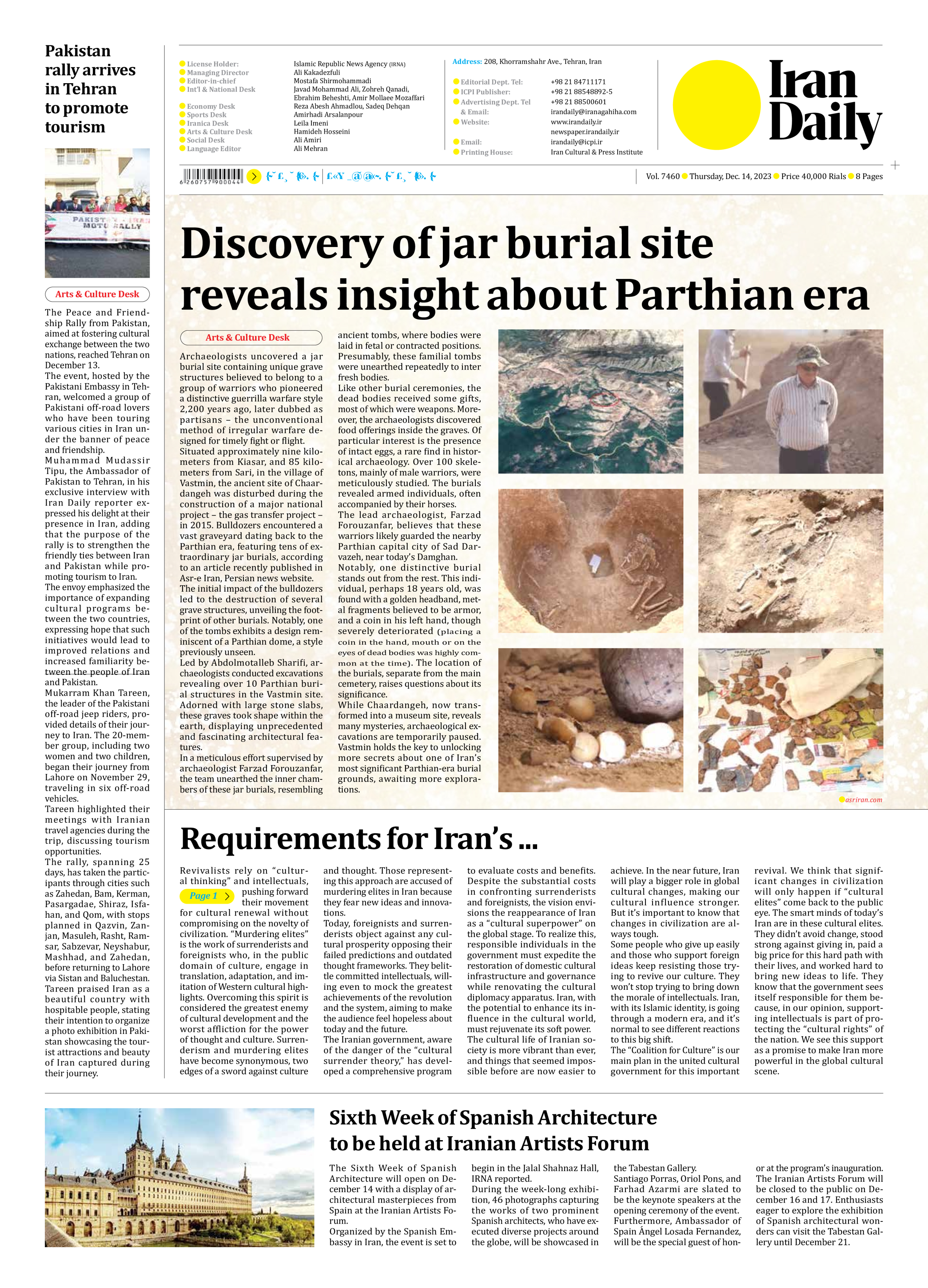
Requirements for Iran’s ...
Page 1
Revivalists rely on “cultural thinking” and intellectuals, pushing forward their movement for cultural renewal without compromising on the novelty of civilization. “Murdering elites” is the work of surrenderists and foreignists who, in the public domain of culture, engage in translation, adaptation, and imitation of Western cultural highlights. Overcoming this spirit is considered the greatest enemy of cultural development and the worst affliction for the power of thought and culture. Surrenderism and murdering elites have become synonymous, two edges of a sword against culture and thought. Those representing this approach are accused of murdering elites in Iran because they fear new ideas and innovations.
Today, foreignists and surrenderists object against any cultural prosperity opposing their failed predictions and outdated thought frameworks. They belittle committed intellectuals, willing even to mock the greatest achievements of the revolution and the system, aiming to make the audience feel hopeless about today and the future.
The Iranian government, aware of the danger of the “cultural surrender theory,” has developed a comprehensive program to evaluate costs and benefits. Despite the substantial costs in confronting surrenderists and foreignists, the vision envisions the reappearance of Iran as a “cultural superpower” on the global stage. To realize this, responsible individuals in the government must expedite the restoration of domestic cultural infrastructure and governance while renovating the cultural diplomacy apparatus. Iran, with the potential to enhance its influence in the cultural world, must rejuvenate its soft power.
The cultural life of Iranian society is more vibrant than ever, and things that seemed impossible before are now easier to achieve. In the near future, Iran will play a bigger role in global cultural changes, making our cultural influence stronger. But it’s important to know that changes in civilization are always tough.
Some people who give up easily and those who support foreign ideas keep resisting those trying to revive our culture. They won’t stop trying to bring down the morale of intellectuals. Iran, with its Islamic identity, is going through a modern era, and it’s normal to see different reactions to this big shift.
The “Coalition for Culture” is our main plan in the united cultural government for this important revival. We think that significant changes in civilization will only happen if “cultural elites” come back to the public eye. The smart minds of today’s Iran are in these cultural elites. They didn’t avoid change, stood strong against giving in, paid a big price for this hard path with their lives, and worked hard to bring new ideas to life. They know that the government sees itself responsible for them because, in our opinion, supporting intellectuals is part of protecting the “cultural rights” of the nation. We see this support as a promise to make Iran more powerful in the global cultural scene.







